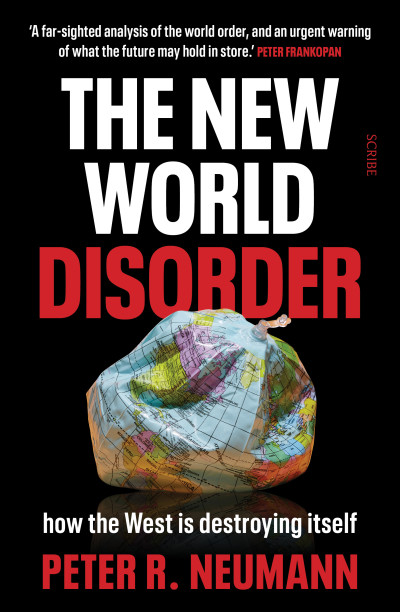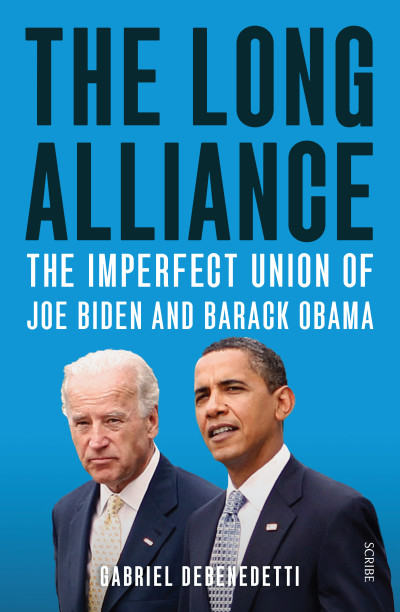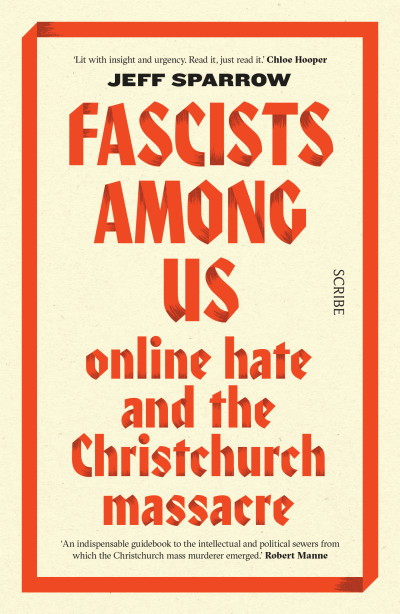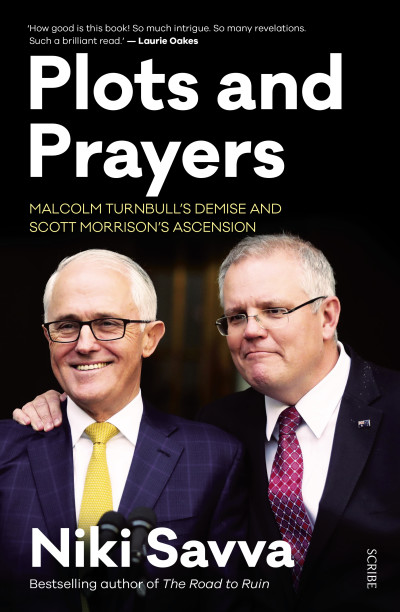‘Azadeh Moaveni has written a powerful, indispensable book on a challenging subject: the inner lives and motivations of women who joined or supported the Islamic State militant group. It is a great read, digestible and almost novelistic, but it is much more than that. Guest House for Young Widows: Among the Women of ISIS tackles many taboos that have hampered clear-eyed discussion of Islamist extremism in general and ISIS in particular. The book provides an illuminating, much-needed corrective to stock narratives, not only about the group that deliberately and deftly terrified officials and publics across the world, but also about the larger ‘war on terror’ and the often ineffective, even counterproductive policies of Western and Middle Eastern governments.’
Anne Barnard, New York Times
‘Peeling back layers of gender, Islamophobia, faith, loyalty, and socialisation, Moaveni situates the women’s stories within the larger historical and sociopolitical context of the time. Following 13 women in total, Guest House for Young Widows is an ambitious attempt to understand the attraction of ISIS for many disaffected youth who were ready to believe.’
Laura Chanoux, Booklist
'What an extraordinary subject and what an extraordinary writer. This book will stun people … It takes you somewhere you’ve never been before … She writes wonderfully clearly and reveals these lives and these stories in all their complexities … An incredibly important book.'
Frances Wilson, Baillie Gifford Prize Judge
‘Brilliantly provocative and genuinely eye-opening ... It is truly fascinating as well as being an incredibly well-written work of narrative nonfiction.’
Alison Huber, Readings
‘The debate badly needs an injection of sanity. Happily, Azadeh Moaveni’s Guest House for Young Widows… provides some perspective … Moaveni makes several pertinent points.’
Louise Callaghan, The Sunday Times
‘A skilful, sensitive report … Superb.’
Rafia Zakaria, The Guardian
‘Moaveni has done her research (she spent decades as a reporter across the region) and the stories feel accurate … Most of these Isis brides still languish in camps across the Middle East, waiting for their home countries to decide their fates. For those interested in understanding them, this book is essential reading.’
Martha Gill, The Times
‘Forensic yet empathetic … Always nuanced, Azadeh tears up the caricature of psychopaths unfazed by beheadings, and paints a more comprehensible portrait of culturally dislocated girls won over by recruiters who knew exactly which buttons to press.’
Dani Garavelli, The Herald
‘Moaveni is completely in control of her material in this hugely complex subject.’
Henrietta McKervey, Irish Independent
‘Azadeh Moaveni has achieved a feat of reporting to provide a rare glimpse into the private lives of these ordinary people caught up in extraordinary events. Brave, visceral, moving; essential reading for anyone seeking to understand so much of the violence in our troubled world.’
Ben Rawlence, author of City of Thorns
‘Guest House is a painstaking piece of investigative reporting that should be compulsory reading for Western politicians.’
Joe Lateu and Peter Whittaker, New Internationalist
‘Fascinating … This penetrating account holds vital lessons for the west’s failed counter-terrorism policy.’
Erika Solomon, Financial Times
‘This narrative nonfiction is written as a pastiche of sorts, vividly painting a picture of the journeys many Muslim women followed during their interactions with ISIS … a cohesive and engaging story.’
Aisling Philippa, Lip
‘Moaveni’s book presents a survey of an unexplored landscape, tracking women’s routes towards Syria … it is written with a lightness of touch that doesn’t evade the complexity of its topic.’
Sisterhood
‘An incredibly detailed piece of journalistic research … It’s genius.’
Baillie Gifford Prize podcast
‘Moaveni humanises her subjects – 13 women who joined IS from Europe and the Middle East – through skillful storytelling and novelistic intimacy.’
Kawther Alfasi, Propsect
‘Moaveni’s prose charges Guest House for Young Widows with elegance, immediacy and occasional caustic humour … this book complicates our simplistic view of the jihadi bride by pulling back the curtain to tell a story that we almost never hear.’
Brendan Daly, The Sunday Business Post
‘The book is a ripping yarn and has been named one of The New York Times’ top 100 books of 2019. It provides a fascinating insight into the complex realities at play for those drawn to the fight.’
Kerrie O’Brien, The Age
‘[A] clear-eyed exploration.’
The Weekend Australian, Geordie Williamson
‘Extraordinary … In Guest House for Young Widows Azadeh Moaveni draws not only on her talents as a storyteller but also on her ability to empathise with the struggles and desires of a diverse range of women.’
Joanna Bourke, Literary Review
‘Guest House for Young Widows brilliantly illuminates the transnational lives and choices of women who joined Isis. Resting on interviews across Europe and the Middle East, it subtly, carefully explains how such women took the path they did.’
Julia Lovell, The Observer
‘It’s a fascinating, clear-eyed examination of what really drove a handful of women, including a small group of British schoolgirls, to move to Syria and join the jihad.’
Gaby Hinsliff, The Guardian
‘Guest House for Young Widows combines sympathy with skepticism … Azadeh Moaveni illuminates these women’s stories without justifying their actions and demands the same clear-eyed understanding from readers.’
Nabeelah Jaffer, TLS
‘Masterly … Moaveni offers sophisticated political analysis, a poet’s sensibility, a shrewd and intuitive awareness of nuance and ambiguity.’
Kevin O’Sullivan, Irish Examiner
‘An insightful read on our ideas of disconnection and displacement in society, terrorism and how religion and ideology preys upon the vulnerable.’
NJ McGarrigle, The Irish Times
Praise for Honeymoon in Tehran:
‘Honeymoon in Tehran is a timely, well-written, and intimate exploration of the soul of Iran. With an eye for detail and a feel for her subject matter, Moaveni has brought to life a country that is at once immensely important to the West and deeply misunderstood. Honest, perceptive, and nuanced, this tale of love and anguish in the Islamic Republic is brimming with poignant political insights. This book will enchant and educate.’
Vali Nasr, author of The Shia Revival: how conflicts within Islam will shape the future
Praise for Lipstick Jihad
‘[The] sense of being an outsider in two worlds may have made daily life difficult for Ms. Moaveni, but it also makes her a wonderfully acute observer, someone keenly attuned not only to the differences between American and Iranian cultures, but also to the ironies and contradictions of life today in Tehran.’
Michiko Kakutani, The New York Times
Praise for Iran Awakening:
‘A moving portrait of a life lived in truth.’
The New York Times Book Review
‘Working with 20-odd women involved in IS and their families, the author shows them to be a diverse group with various motivations … Writing sympathetically but not uncritically, Moaveni helps readers understand why these women join IS.’
Kirkus Reviews
‘Moaveni (Lipstick Jihad) explores the reasons young women join the Islamic State … Moaveni presents a compact history of the Syrian conflict and expands on the political and socioeconomic situations that gave rise to extremism in Europe and North Africa. The author pays special attention to the factors behind the women's choices and where interventions could have been made, as she hopes that by addressing the underlying causes, future occurrences will be prevented … A compelling read that imparts important lessons about religious extremism. Recommended for readers interested in women's issues and current affairs.’
Rebekah Kati, Library Journal
‘Guest House for Young Widows offers unprecedented insight into the recent history of Tunisia, Syria, and Iraq as well as the rise of transnational political movements … This detailed book is an essential addition to library and academic shelves.’
BookBrowse
‘Journalist Azadeh Moaveni uses years of powerful, intimate reporting, including interviews with women who joined the Islamic State, their families and their communities, to show how smart young girls, girls who watched The Princess Diaries and went to Zumba classes, became radicalised … All of the detail and history allows Moaveni to describe these girls in a way that’s both relatable and admirably anchored in context.’
Minneapolis Star Tribune

























